Fortified Salt: The Secret Superhero of Your Spice Cabinet
Table of Contents
- A Salty Tale: Why Fortified Salt is Worth the Hype
- What Exactly is Fortified Salt Anyway?
- Why You Should Care About Iodine, Iron & Co.
- Creative Uses of Fortified Salt in Cooking
- How to Choose the Best Fortified Salt for Your Kitchen
- The Health Perks (and When to Watch Out)
- DIY or Buy? Making Your Own Fortified Salt at Home
- What’s Next for Fortified Salt? Trends and Innovations
A Salty Tale: Why Fortified Salt is Worth the Hype
Let’s face it — salt doesn’t always get the respect it deserves. Most people think of it as just that shaker on the table or the gritty stuff that makes your pasta water taste like the ocean. But not all salts are created equal. And when it comes to fortified salt? Oh, we’re talking about the MVP of mineral magic.
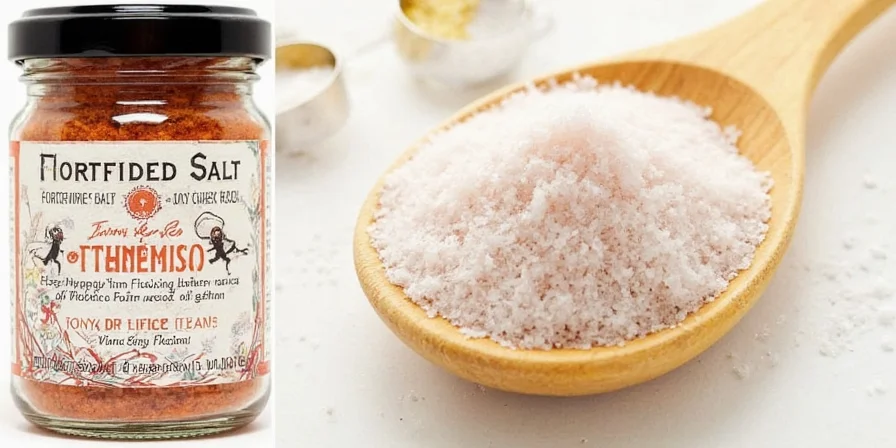
Visualizing the differences between regular salt and fortified varieties.
Fortified salt isn’t just a flavor booster; it’s also a silent guardian of health. From iodized salt preventing goiters to iron-fortified versions supporting blood health, this humble kitchen staple has more under its belt than you’d expect.
What Exactly is Fortified Salt Anyway?
Fortified salt is your average sodium chloride with some nutritional upgrades. Think of it as salt wearing a superhero cape. Common fortificants include:
- Iodine
- Iron
- Vitamin A
- Zinc
These nutrients are added during processing to help combat deficiencies in populations where dietary diversity may be limited.
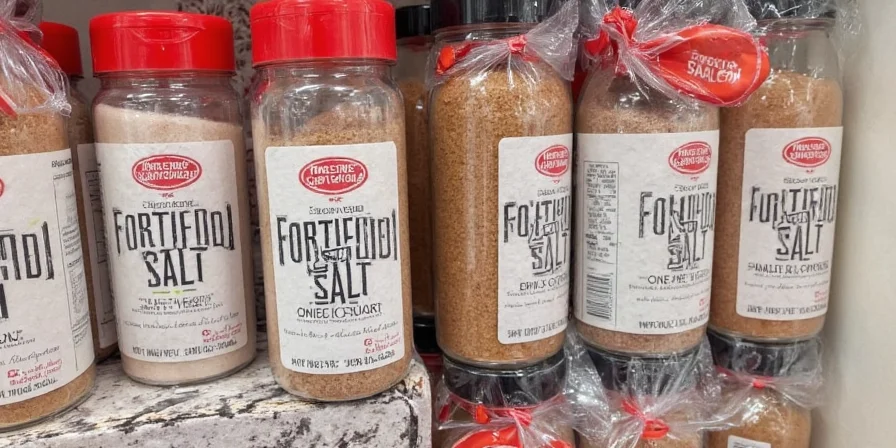
A look into how minerals are added during the salt production process.
Why You Should Care About Iodine, Iron & Co.
You might wonder why these specific nutrients are chosen for fortification. Let’s break it down:
| Nutrient | Role in the Body | Deficiency Symptoms | Common Fortified Foods |
|---|---|---|---|
| Iodine | Thyroid function, brain development | Goiter, mental impairment | Iodized salt |
| Iron | Blood oxygen transport, energy | Anemia, fatigue | Iron-fortified salt, cereals |
| Vitamin A | Eye health, immunity | Vision loss, weakened immune system | Vitamin A-enriched salt, oils |
| Zinc | Growth, immunity, wound healing | Poor growth, infections | Zinc-fortified salt, flours |
Creative Uses of Fortified Salt in Cooking
You don’t have to be a world-class chef to benefit from fortified salt. Here are some fun ways to use it in your everyday meals:
- Brining Magic: Use iodized salt for brining meats. It adds flavor and helps tenderize proteins.
- Rub Me Up: Mix fortified salt with herbs and spices to make killer dry rubs for grilled veggies or steak.
- Savory Sprinkle: Top popcorn or roasted nuts with iron-fortified salt for a crunchy, healthy snack.
- Bread Baking: Add a pinch to bread dough — enhances flavor and texture while boosting nutrient content.
- Sweet + Savory: Believe it or not, a tiny bit of vitamin-A enriched salt can balance sweetness in desserts like caramel or chocolate.
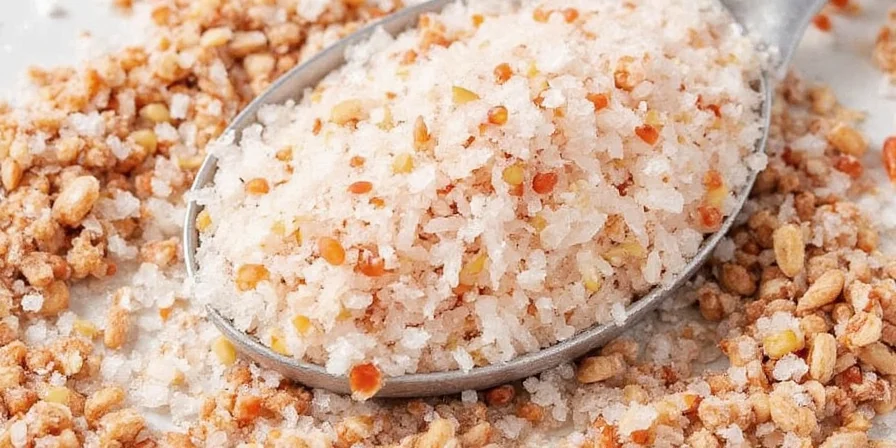
Chef using fortified salt to prepare a flavorful marinade.
How to Choose the Best Fortified Salt for Your Kitchen
With so many types on the market, how do you pick the one that fits your needs? Consider the following factors:
- Type of Nutrient: Check which nutrients are added and if they align with your family's needs.
- Texture: Fine grain for baking or seasoning dishes; coarse for finishing touches.
- Additives: Some brands add anti-caking agents or preservatives. Read labels carefully.
- Brand Reputation: Stick to well-known producers or those certified by public health organizations.
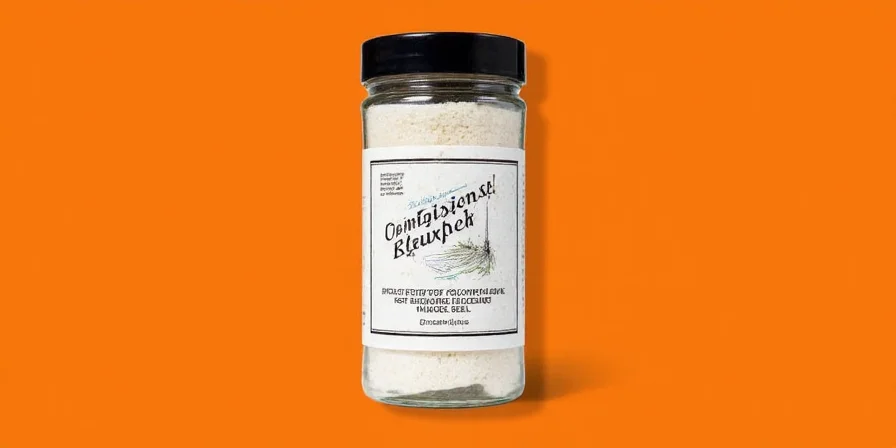
Label reading is key when choosing the right fortified salt.
The Health Perks (and When to Watch Out)
We’ve already mentioned the good parts, but let’s dig deeper:
- Iodine Deficiency Prevention: Especially important for pregnant women and children. Just one teaspoon of iodized salt covers daily needs.
- Anemia Reduction: Iron-fortified salt can reduce anemia rates in vulnerable groups.
- Immune Boosting: Zinc and Vitamin A support immunity and eye health, respectively.
But remember: too much of a good thing can turn bad. Excessive salt intake — even fortified — can lead to high blood pressure and heart issues. Moderation is key!
DIY or Buy? Making Your Own Fortified Salt at Home
If you're feeling crafty, here’s how to DIY your own fortified salt blend:
- Choose a base salt (sea salt, kosher, etc.).
- Select a powdered nutrient supplement (iodine drops, iron powder).
- Mix thoroughly in small batches.
- Store in airtight containers away from moisture.
Pro tip: Be precise! Too much of a nutrient can cause harm. Always consult reliable sources or a nutritionist before making your own.
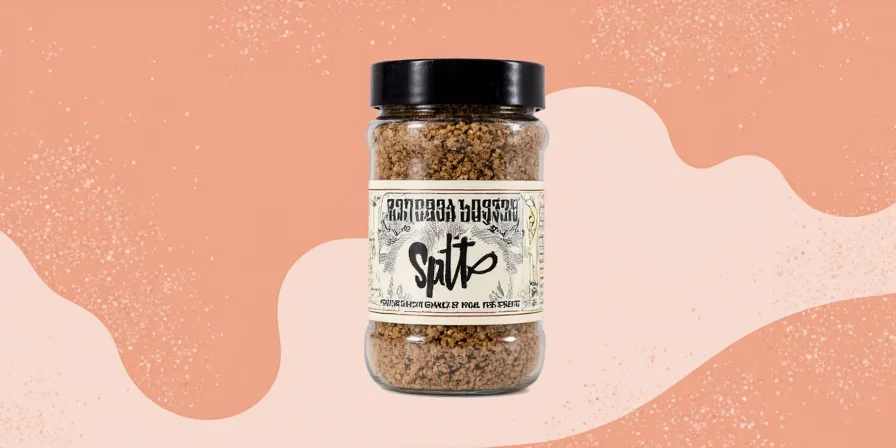
Creating your own fortified salt blend at home.
What’s Next for Fortified Salt? Trends and Innovations
The future of fortified salt looks bright. Innovations include:
- Biofortification: Breeding crops that naturally absorb more nutrients from the soil.
- Microencapsulation: Protecting sensitive vitamins during storage and cooking.
- Flavored Fortified Salts: Combining turmeric, garlic, or chili with fortified blends for extra zing.
- Eco-friendly Packaging: Reducing plastic and carbon footprint in salt production.
As global health initiatives grow, expect to see even more creative ways fortified salt impacts both flavor and wellness.
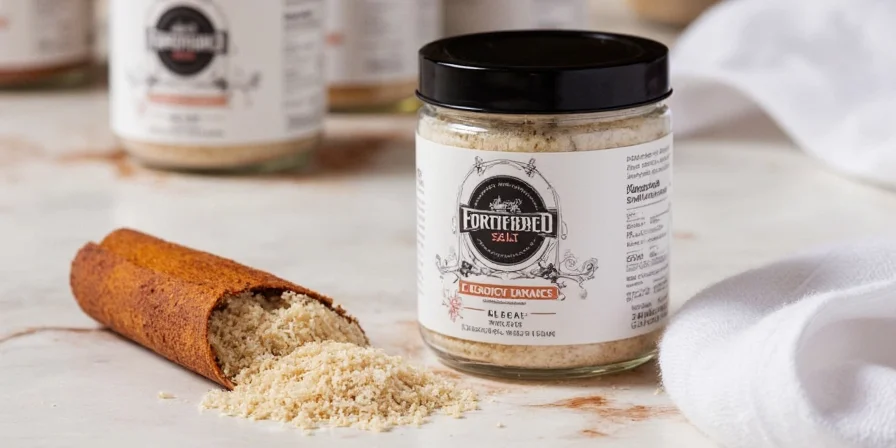
Imagining the next generation of fortified salt innovations.
Conclusion
Fortified salt may sound like a niche ingredient, but it plays a surprisingly powerful role in our kitchens and communities. Whether you're looking to enhance your dishes or boost your daily nutrient intake, fortified salt is a versatile, accessible tool worth exploring.
So next time you reach for the salt shaker, take a moment to appreciate what’s inside — not just flavor, but years of scientific progress and global health impact packed into every grain.

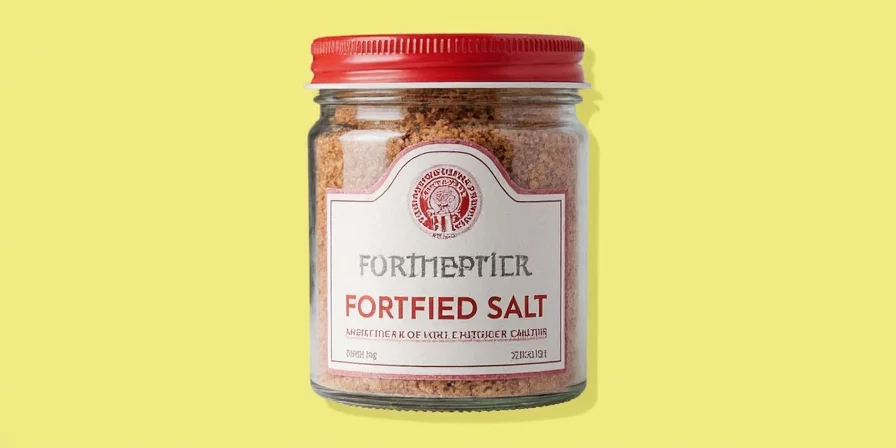









 浙公网安备
33010002000092号
浙公网安备
33010002000092号 浙B2-20120091-4
浙B2-20120091-4